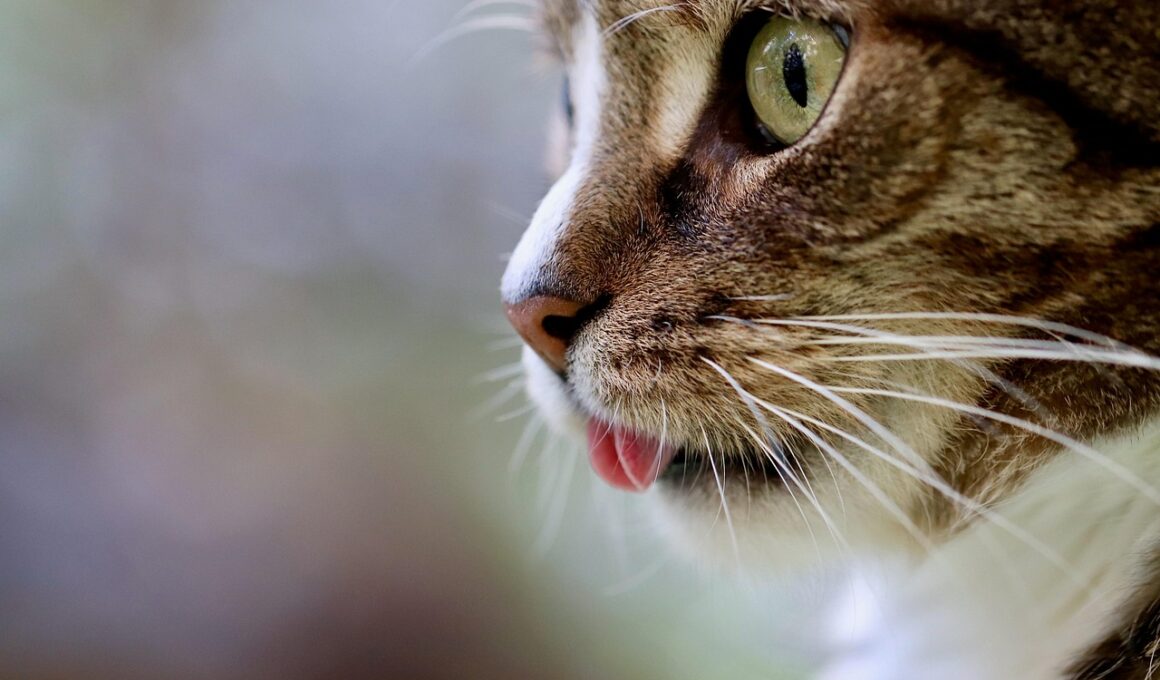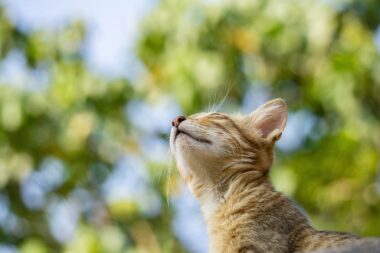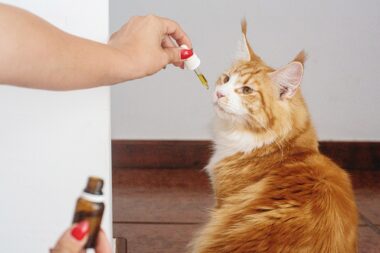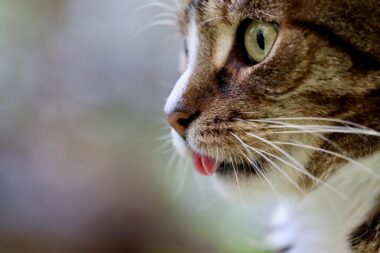Natural Remedies to Help Cats Cope with Separation Anxiety
Separation anxiety in cats is a common issue that can lead to stress and destructive behavior. To effectively manage this condition, natural supplements can be a valuable tool. Supplements containing ingredients like L-theanine, a natural amino acid found in green tea, can help your cat feel calm during distressing situations. Additionally, valerian root and chamomile are known for their soothing properties and can be beneficial in reducing anxiety. Cats thrive on routine, and introducing these supplements into their daily diet can create a sense of familiarity. Remember, it’s essential to consult your veterinarian before introducing any new supplement, especially if your kitty is on other medications. Giving your feline friend a safe space to retreat to can also help alleviate their anxiety. Utilizing calming pheromones in their environment, alongside supplements, can enhance their comfort level when home alone. Moreover, interactive toys and engaging activities can distract them from stressors. Ultimately, a combination of natural remedies and environmental adjustments can significantly benefit cats suffering from separation anxiety.
Another effective supplement for managing separation anxiety in cats is magnesium. This mineral plays a crucial role in regulating the nervous system and helping to maintain calmness. Natural sources of magnesium include spinach, pumpkin seeds, and bananas; however, it’s often more practical to choose magnesium supplements formulated specifically for pets. Always consult your veterinarian for the appropriate dosage to ensure your cat’s safety. In addition to magnesium, herbal remedies such as ashwagandha can aid in providing relief from anxiety. Ashwagandha is an adaptogen, meaning it helps the body adapt to stress. When combined with calming environments, these natural supplements can foster a sense of peace for your feline companion. For optimal results, establish a consistent routine for administering the supplements. Including gentle playtime and social interaction during this routine can also strengthen your bond with your cat, making them feel more secure. If they struggle with anxiety despite your efforts, consider investing in natural calming beds or blankets infused with relaxing scents. As always, be patient and attentive to your cat’s unique needs and reactions.
Tips for Administering Natural Supplements
Administering natural supplements effectively can be key to your cat’s acceptance of them. Start with low doses and gradually increase them to check for tolerance. It is essential to monitor your cat’s behavior during this time, as they might be sensitive to new additions in their diet. Often, supplements can be mixed with their food to ensure they consume them without fuss. You may also use treats to facilitate administration; this can make the experience more enjoyable for your feline friend. Moreover, you can create a positive association by rewarding your cat with praise or extra affection after taking their supplements. If your cat is particularly picky or resistant, explore flavored options specifically designed for cats. Some natural supplements come in palatable forms—such as liquid or bite-sized chews—that may be easier for your cat to ingest. Be patient, as it may take multiple attempts before your cat accepts the supplement you choose. Consistency is key, and eventually, integrating these remedies into their routine should help ease their separation anxiety.
Another option you might consider in natural remedies is the use of essential oils. Certain oils, like lavender or cedarwood, can provide a calming atmosphere when used properly. It’s essential to note that not all essential oils are safe for cats, so thorough research and consultation with a veterinarian are necessary. For cats, it is usually recommended to use diffusers at low concentrations or incorporate these oils into their environment cautiously. Lavender, in particular, is known for its comforting properties and can help reduce anxiety. However, never apply essential oils directly to your cat’s skin, as this can lead to serious health issues. Instead, create a soothing space with calming scents while ensuring proper ventilation. In addition to essential oils, incorporating herbal teas into your cat’s diet, such as chamomile, might also yield positive results. Prepare the tea and offer a cooled liquid version for hydration and relaxation. It’s vital to observe how your cat responds to these herbal and aromatic approaches. If they show any signs of discomfort, cease use immediately.
Creating a Calming Environment
One of the most efficient ways to manage your cat’s separation anxiety is by creating a peaceful environment at home. Stressful stimuli can exacerbate anxiety, so consider minimizing noise and providing cozy hiding spots where your cat can retreat. Installing soft, calming music or white noise machines can help drown out disturbances from outside or inside. Cats adore enclosed spaces, so cozy pet tunnels or enclosed beds can offer your feline a safe haven. Additionally, providing high perches can create a sense of security, allowing them to observe their surroundings from a comfortable height. Ensure your cat’s area is clutter-free, as scattered items might contribute to their anxiety. Invest in interesting chew toys or puzzle feeders to keep their mind engaged during your absence. Familiar scents like your used clothing can also bring comfort. Perhaps, you might decide to rotate their toys regularly to maintain interest and engagement. Lastly, consider giving your cat a piece of your worn clothing when you leave; this can provide a sense of comfort and security while you are away.
Physical activity is another essential component of your cat’s mental health and can significantly reduce separation anxiety. Engaging your cat in playful activities helps release excess energy and stimulates their mind, resulting in a more relaxed demeanor. Introduce daily play sessions that involve interactive toys, such as feather wands or laser pointers. These toys encourage exercise and bonded interaction between you and your pet, relieving boredom and anxiety. If your schedule may be tight, consider automated toys that can engage your cat while you are away. Puzzles or treat-dispensing toys can keep your cat entertained, providing mental challenges that will divert their attention from feelings of anxiety. Additionally, following a consistent routine where feeding and playtimes are regular can bring stability to your cat’s daily life, which can be immensely beneficial. Establishing a reliable schedule allows your furry companion to feel more secure and reduces unexpected stressors. Recognizing your cat’s unique personality during play can further enhance their experience and contribute to their overall happiness when you’re not at home.
When to Seek Professional Help
While natural remedies and adjustments can significantly aid in managing separation anxiety, there are times when professional assistance is crucial. If your cat displays severe anxiety symptoms, including excessive destructive behavior, vocalization, or signs of distress, reaching out to a veterinarian or a certified animal behaviorist is advisable. These professionals can help determine the underlying cause of the anxiety and recommend tailored strategies for your feline friend. In instances where natural supplements alone are ineffective, behavior modification techniques might be required. Prescription medications may also be offered to manage your cat’s anxiety until they become more accustomed to being alone. Consistent monitoring of your cat’s response to any treatment plan is vital to evaluating its success and seeing necessary adjustments. Resources such as pet support groups can also provide valuable insights and encouragement throughout the process. Lastly, be patient as addressing separation anxiety can take time, and implementing changes and finding the right remedies can lead to significant improvements over time.
In summary, using natural supplements can play a significant role in alleviating your cat’s separation anxiety. By incorporating calming supplements like L-theanine, valerian root, and chamomile, you can create a supportive environment that fosters tranquility. It’s vital to consult with your veterinarian before introducing these remedies. Additionally, consider essential oils, herbal teas, interactive toys, and a calming environment as complementary strategies. The essential aspect of helping your cat cope lies in patience, observation, and consistency in your approach. Engaging in regular playtime and establishing routines will further solidify your bond. Remember that every cat is unique; therefore, discovering what works best for your furry friend may require some experimentation. If symptoms persist or worsen, always seek professional help. Navigating your cat’s anxiety is an important aspect of pet ownership, and with the right tools and strategies, you can create a nurturing and calm atmosphere to help alleviate their stress. By focusing on their mental health will not only strengthen the connection between you and your pet, but also enhance their overall well-being and happiness.





